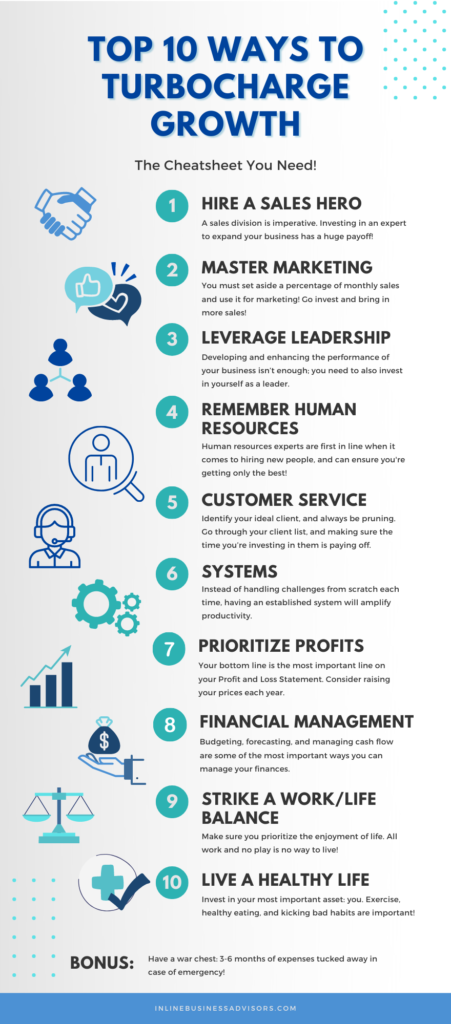As a small business owner, you wear many hats. From being the CEO to your own marketing team, you do it all. However, there comes a point when your company starts to grow, and you find yourself juggling tasks that are better suited for specialists. One of those areas is human resources (HR). So, the question arises: Does your small business need HR? And if so, when should you make that move? In this complete guide, we’ll delve into the world of HR for small businesses and help you navigate the decision-making process.
Why Does a Small Business Need HR?
Understanding the crucial role of HR is fundamental for small businesses. HR serves as the organizational backbone, impacting various key areas.
Compliance: In HR, compliance is paramount, involving adherence to numerous employment laws. HR experts adeptly navigate complex regulations across local, state, and federal levels, aligning company operations with legal mandates. This includes understanding laws like FMLA, ADA, and FLSA. HR’s commitment to compliance not only shields your business from legal pitfalls but also promotes a fair workplace for all employees.
Hiring and Retaining Employees: HR oversees the employment lifecycle, from creating job descriptions to managing layoffs and terminations. Their role in recruitment and retention is vital, aligning company operations with strategic goals and ensuring legal and respectful processes.
Employee Training and Development: Central to HR’s mission is guiding new hires and driving continuous training and career advancement. This not only enhances individual performance but also contributes to the organization’s success, nurturing a culture of continuous learning.
Compensation and Benefits: HR manages compensation and benefits, ensuring fairness, competitiveness, and compliance with employment taxes. This strategic management helps attract and retain top talent, safeguarding both employee well-being and the business’s interests.
Creating an Inclusive Company Culture: HR shapes an inclusive company culture, addressing diversity and promoting equity. Their efforts create a welcoming environment, enhancing the overall workplace atmosphere and leading to a productive environment.
Writing and Maintaining Employee Handbooks: HR’s tasks include updating employee handbooks and conducting performance reviews. Handbooks ensure clear communication of company policies, while performance reviews are essential for evaluating and developing employees. These practices contribute to workplace transparency and professional growth.
Handling Performance Reviews: HR plays a crucial role in conducting performance reviews, a key aspect of evaluating and developing employees. They ensure the fairness and effectiveness of these reviews, providing tools and training for improved performance. By offering constructive feedback and helping set clear goals, HR enhances professional development and retention of top talent, demonstrating a commitment to their growth.

The Right Time for a Businesses to Hire an HR Person
It has been established that a small business needs HR for multiple reasons, but the million-dollar question is when to bring HR into the picture. While there’s no hard and fast rule, most experts recommend considering HR when your company has at least ten employees. However, some business owners opt to hire an HR partner even sooner.
Consider several factors, including valuing your time as a business owner. If HR tasks reduce your productivity or affect staff time, hiring an HR generalist may be wise. Transitioning to a separate HR team can boost employee engagement and foster an inclusive culture, crucial for small business success.
Benefits of Having a Separate HR Team
Every small business benefits from an HR team, not just for a healthy work culture, employee compensation, and compliance, but for much more.
Strategic Resource Allocation: A dedicated HR team enables business owners to concentrate on core competencies, sparking innovation and growth. Moreover, HR’s handling of workforce management, compliance, and employee relations allows leaders to focus on strategic planning, thereby enhancing efficiency and spurring sustainable business growth.
Conflict Resolution: In the realm of conflict resolution, HR professionals excel. They adeptly mediate disputes, cultivating a harmonious work environment. This effort significantly boosts employee morale and productivity, fostering a more cooperative and focused workforce.
Enhanced Recruitment: HR teams utilize a variety of recruitment tools to efficiently attract top talent, a critical step in streamlining the hiring process and saving resources. The efficient onboarding of well-suited individuals not only elevates productivity but also aligns with the evolving needs of the business.
Employee Development: In employee development, HR plays a pivotal role. They design and implement programs that enable skill acquisition and career progression. This investment in employee growth fosters a culture of continuous learning and professional advancement, equipping the workforce to adapt in a dynamic business environment.
Cost Savings: Finally, HR specialists contribute significant cost savings in recruitment. By effectively managing the recruitment process and identifying the right candidates, they mitigate the financial risks associated with hiring errors. Their expertise in recruitment thus ensures an efficient process that lessens the financial impact on the company.

Setting Up HR for a Small Company
Small businesses require a competent HR team for all responsibilities. The HR team should handle demands of scaling ventures. Special focus is needed when forming an HR team or department.
When setting up an effective HR function for your small company, you have several options to consider, depending on your specific needs and resources:
Hire an HR Professional: For businesses with sufficient size and budget, hiring an in-house HR professional or team is beneficial. They manage everything from recruitment to compliance. An HR generalist suits smaller businesses, handling various tasks and using vendors for automatable tasks to save costs.
Outsource Your HR Management: For those not needing full-time HR, outsourcing is strategic. HR consultants or firms offer tailored expertise for recruitment, benefits, and compliance. This flexible solution minimizes costs associated with a full-time HR team and provides expertise for efficient HR management.
Use HR Software: HR software streamlines and automates tasks for small businesses. It offers features for hiring, onboarding, training, payroll, and documentation. These solutions scale with business growth, maintaining efficiency and alignment with goals.
Every small business needs an HR department to create a harmonious relationship between your company and employees, which can eventually boost the overall efficiency and productivity of the organization. By carefully evaluating your business requirements, resources, and growth trajectory, you can choose the HR setup that best aligns with your goals and budget, ensuring that your HR function operates smoothly and effectively to support your company’s success.

Should Small Businesses Outsource Their HR Function?
Deciding whether to outsource your HR function is a pivotal choice for small business owners seeking to optimize their operations. Two common outsourcing options are professional employer organizations (PEOs) and administrative services organizations (ASOs). PEOs provide comprehensive HR solutions, essentially becoming the employer of record for your employees, which can simplify payroll, benefits, and compliance management. ASOs, on the other hand, offer HR support without the co-employment arrangement, allowing you to retain more control over your workforce.
Another option is HR software, which can prove invaluable for managing specific HR tasks, such as payroll processing, onboarding, and document management. It offers flexibility, scalability, and cost-effectiveness, especially for businesses with modest HR needs.
While small business owners often find themselves juggling numerous responsibilities, the critical functions encompassed by HR cannot be overlooked. Delegating HR tasks, whether through hiring an in-house HR professional, engaging a third-party provider like a PEO or ASO, or leveraging HR software, can lead to a more streamlined, productive, and legally compliant workforce. By investing in HR, you not only ensure that your business adheres to employment laws but also enhance employee satisfaction, fostering a work environment conducive to growth and success. Ultimately, this strategic decision will prove to be a valuable asset for your small business, contributing to its long-term prosperity.

Larry Vivola is a successful business coach who coaches entrepreneurs anywhere in the world via Zoom. If he’s not coaching he’s making meatballs and entertaining friends and family!
Free Advice Sucks! Invest in a one-time strategy session and pick Larry’s brain to help solve a pressing problem, discuss an idea, or brainstorm how to give your business performance a Turbo Boost!!! In the end your investment will yield you more money, time, and happiness!

